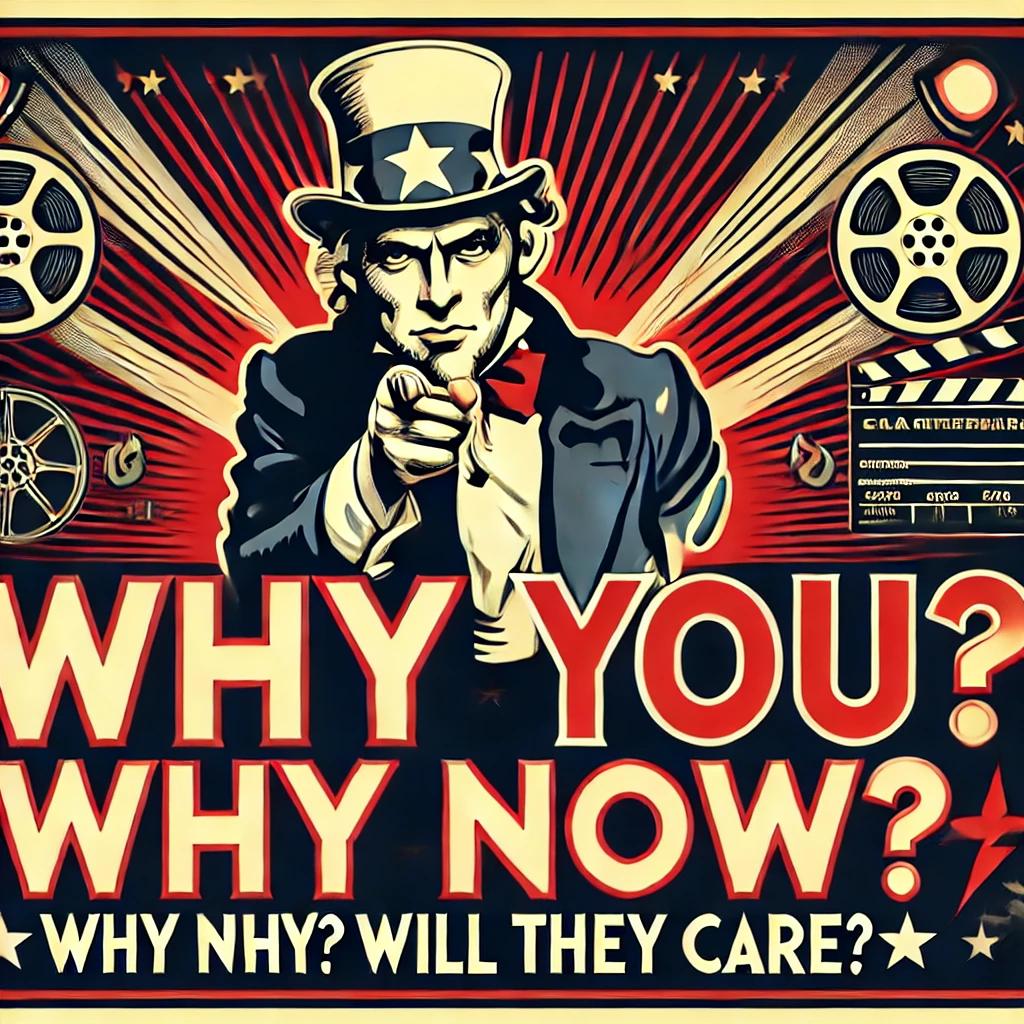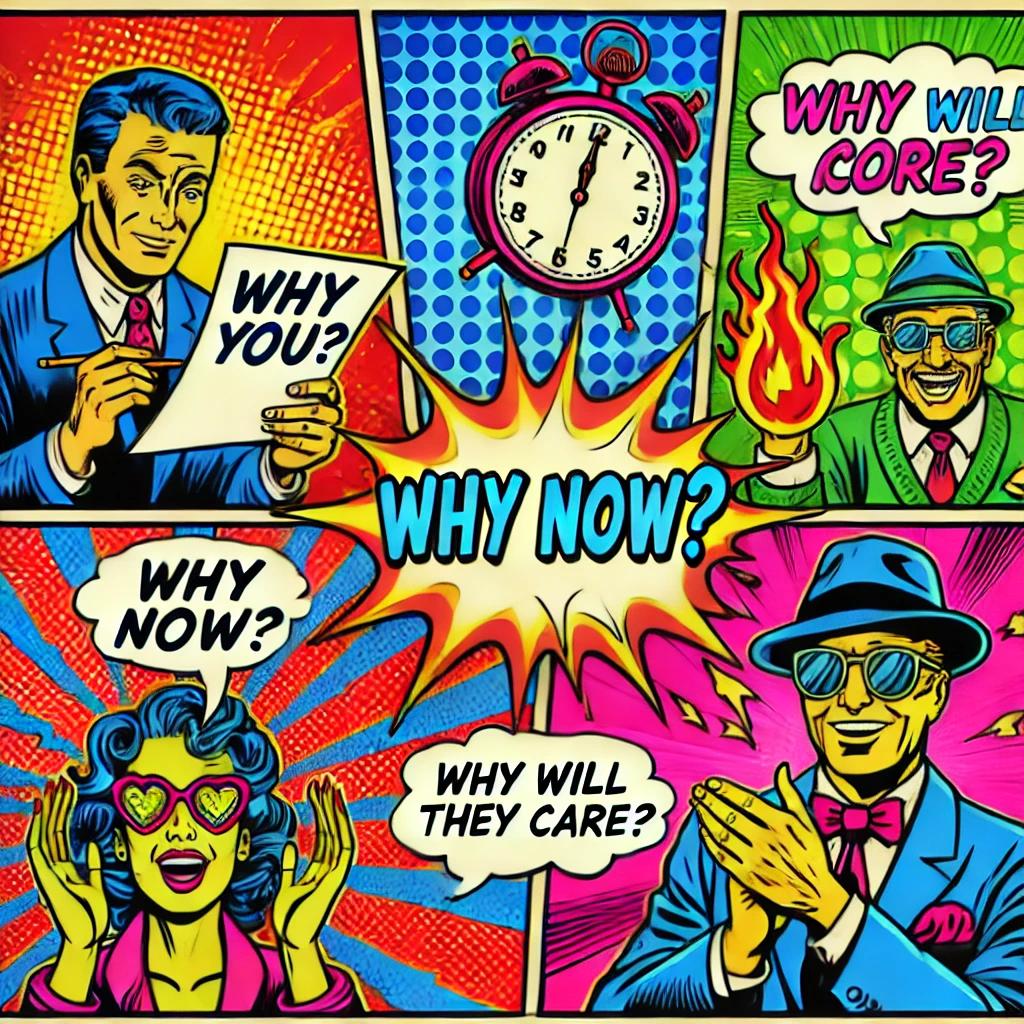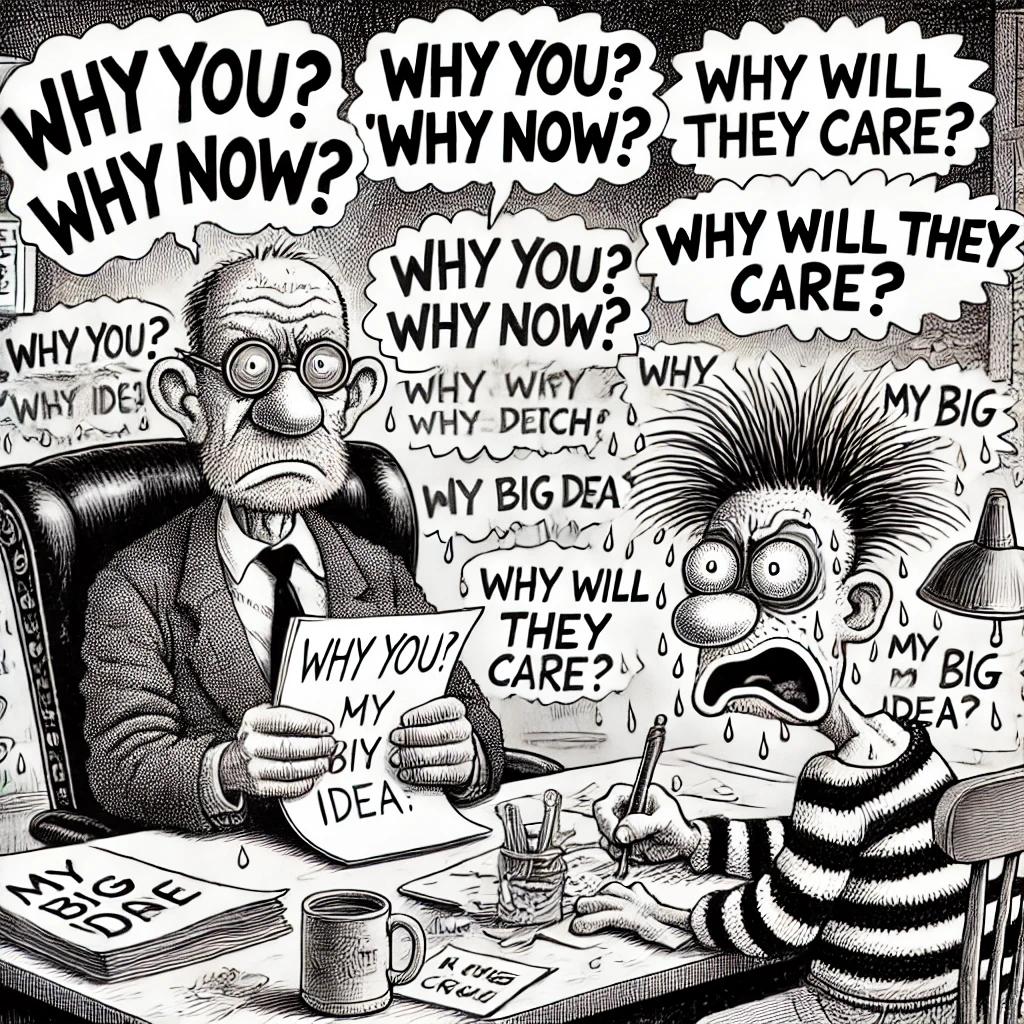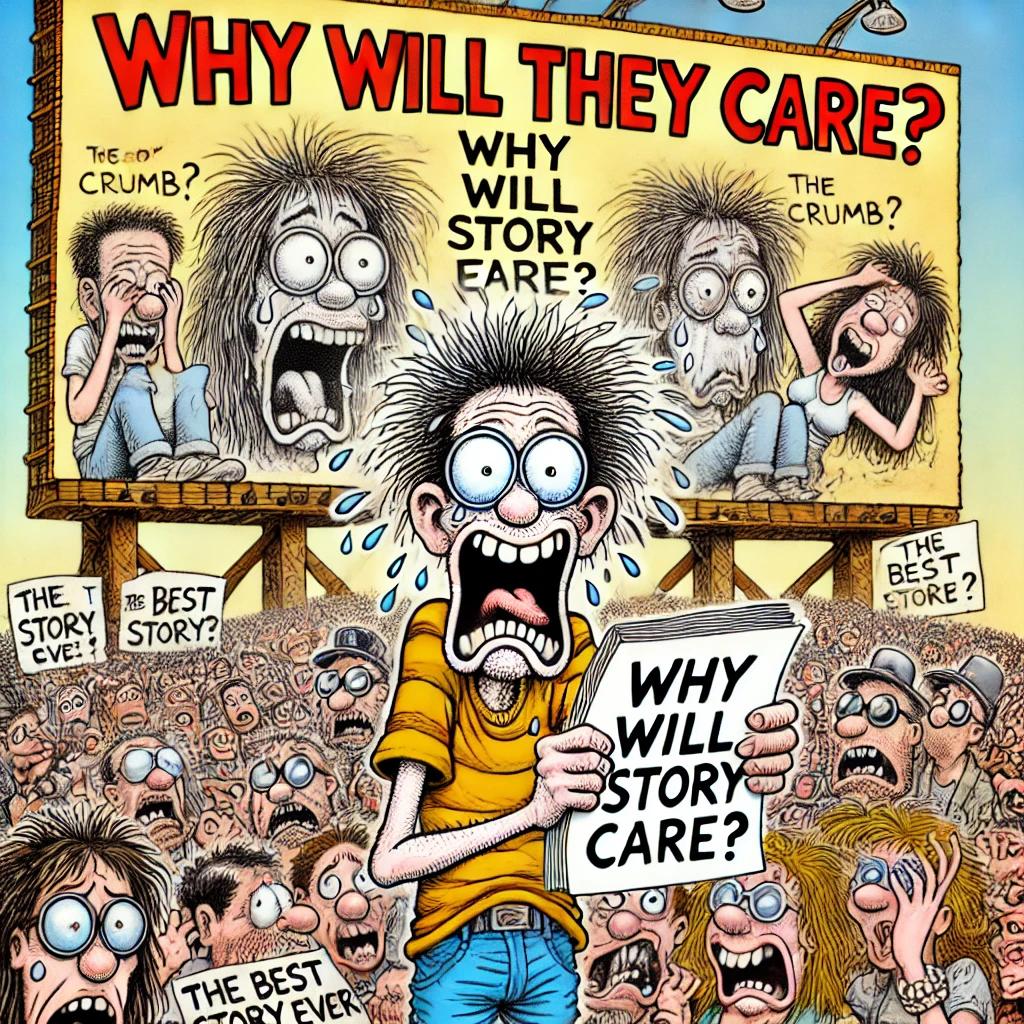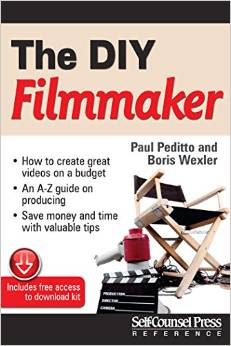WHY YOU? WHY NOW? WHY WILL THEY CARE?
Remember this Gauguin painting?
Where Do We Come From? What Are We? Where Are We Going?
Gauguin asked: Where do we come from? What are we? Where are we going? Rather important questions for a human mammal to consider, no?
Here’s another trilogy of W questions that should be just as important for any writer of screenplays or TV pilots preparing to pitch:
WHY YOU? WHY NOW? WHY WILL THEY CARE?
These are related but not quite the same thing, and a writer about to go into the room should be ready to hear some variation of these from the producer they’re about to meet.
WHY NOW?
Why is your script timely? Why will it speak to a current-day audience? Why is it relevant?
WHY YOU?
Why are you the one to write this script? This must include the passion you have for the material, why it’s personal, and why you’re uniquely qualified to write on this subject matter.
WHY WILL THEY CARE?
Why will an audience care? For that matter, who is the audience? Why will the film script or TV pilot grab an audience? Why is it relatable? Why is it commercial?
My AI, who admittedly has never pitched, has some thoughts on this trilogy of W’s. Tough questions, right Luna?
WHY NOW?
This question isn’t about your writing schedule. It’s about timing. Why is this story relevant right now? What about the current social, cultural, or industry climate makes your script feel urgent or fresh?
What They’re Really Asking:
- “Why should we care today?”
- “What about this story feels like it belongs in 2024 (or beyond)?”
How to Answer It:
- Tie It to Current Events or Trends:
Does your script tap into something society is talking about? A social movement, a political moment, or a universal feeling like anxiety or hope?
Example: “This story explores loneliness in a hyper-connected world, which is something millions of people are struggling with right now.” - Show How It Fills a Gap:
If your idea is the kind of story that isn’t being told—or puts a fresh spin on something familiar—highlight that.
Example: “Audiences love thrillers, but there hasn’t been a good Hitchcockian ‘wrong man’ story in years. This script brings that vibe to a contemporary setting.” - Explain Its Relevance to the Market:
Be aware of industry trends: What’s selling? What’s getting greenlit? If your script fits a specific niche, emphasize it.
Example: “This is a grounded sci-fi story that appeals to fans of shows like Black Mirror, but it’s centered on human relationships rather than dystopia.”
What to Avoid:
- Don’t force a connection to a trend that feels irrelevant or superficial. If your story isn’t about “timeliness,” focus on its timeless appeal instead.
WHY YOU?
This is the most personal question—and the trickiest to answer if you haven’t thought it through. Producers want to know what makes you the best (or only) writer for this project. Your answer should blend passion, expertise, and authenticity.
What They’re Really Asking:
- “What’s your connection to this story?”
- “Why should I trust you with this material?”
How to Answer It:
- Make It Personal:
What part of this story comes from your life, your experiences, or your perspective? Even if it’s fiction, find a way to tie it back to something meaningful to you.
Example: “I grew up in a small-town diner, and this story about struggling with dreams in a place that doesn’t dream big is deeply personal to me.” - Show Your Passion:
Why does this story matter to you? Producers want to see that you’re committed to the material—not just as a paycheck, but because it’s burning a hole in your soul.
Example: “I’ve always been fascinated by forgotten historical figures, and this script lets me shine a light on someone who changed the world but never got their due.” - Highlight Your Expertise:
If you have a unique skill set, background, or perspective that adds authenticity to the script, use it.
Example: “I spent five years working in biotech, so the science in this script is grounded in real-world experience.”
What to Avoid:
- Don’t overshare or go on a long-winded tangent about your life story. Keep it focused on what’s relevant to the project.
WHY WILL THEY CARE?
This one’s about your audience. Producers want to know who’s going to watch this and why. Is it relatable, compelling, or commercial? Why will someone choose this story over the endless other options out there?
What They’re Really Asking:
- “What’s the hook?”
- “Who is this for?”
How to Answer It:
- Know Your Audience:
Be specific about who the project is targeting. Is it a broad four-quadrant blockbuster? A niche indie for art-house fans? A prestige drama aimed at awards voters?
Example: “This is for young adults who grew up on Stranger Things but are looking for a darker, more mature take on coming-of-age stories.” - Explain the Emotional Hook:
Why will people connect with the story? Even high-concept ideas need an emotional core.
Example: “At its heart, this story is about a father and daughter reconnecting after years apart, which is something anyone can relate to.” - Highlight Its Uniqueness and Commercial Appeal:
What makes your story stand out in a crowded market?
Example: “This is a comedy about the immigrant experience, but it’s told through the lens of absurd, almost magical-realist humor. It’s like Everything Everywhere All At Once meets The Farewell.”
What to Avoid:
- Don’t overpromise. If you’re pitching a $1M indie script, don’t claim it’s the next Avatar. Be realistic about the scale and audience.
Pulling It All Together
A great pitch doesn’t answer these questions in isolation—it weaves them into a seamless narrative. Here’s how that might sound:
“This script is timely because it taps into the way technology is isolating us even as it connects us. The story focuses on a lonely programmer who creates an AI companion, only to realize he’s accidentally programmed his own worst traits into it. It’s deeply personal to me because I’ve worked in tech and seen how people pour their loneliness into their creations. It’s a grounded sci-fi story that appeals to fans of Black Mirror, but with the emotional heart of Her. I believe it’ll resonate with anyone who’s ever felt isolated in a hyper-connected world.”
By the end of that pitch, you’ve answered:
- Why Now? It’s relevant to today’s concerns about technology and loneliness.
- Why You? It’s personal, and you have a background in tech.
- Why Will They Care? It has a clear emotional hook and appeals to a specific audience.
Final Thought: Be Prepared
Answering these questions requires more than just knowing your script—you need to know yourself, your audience, and the industry. Take the time to craft answers that feel authentic and compelling. Producers will know if you’re bluffing, but they’ll also know when you’re speaking from the heart.
So the next time someone asks, “Why you? Why now? Why will they care?” you’ll have the answers locked, loaded, and ready to impress.

